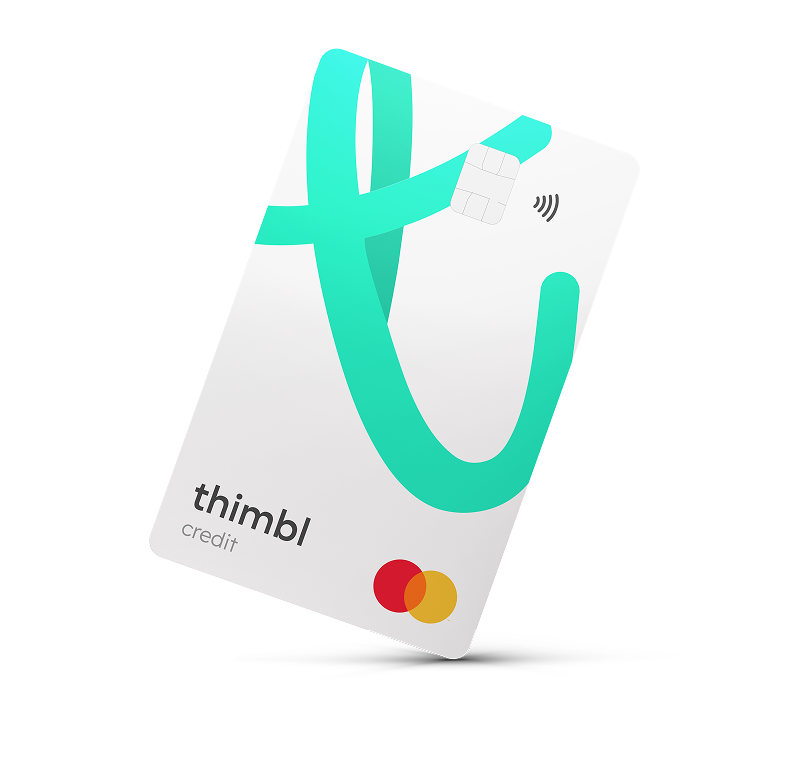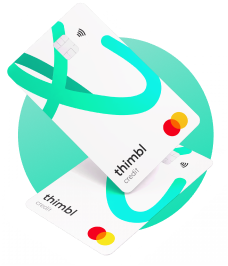Important information to consider before using BNPL
Buy now, pay later (BNPL) explained
You might have heard of buy now pay later (BNPL); maybe you’ve considered using it yourself. This thimbl guide to BNPL shares some key information about the service that you might find helpful, as well as some alternatives to BNPL.




What is buy now pay later?
As the name suggests, buy now pay later is a form of borrowing. BNPL allows you to make a purchase and repay the cost at a later date, either in instalments or in one lump sum. You can use BNPL both online and in some physical stores.
Repayment plans vary between different BNPL providers, but you may be able to spread the cost of your purchase in fortnightly or monthly instalments.
Some companies that offer BNPL include Klarna, Clearpay, Zilch, and PayPal.
- For all credit levels, from poor to excellent
- Checking won’t affect your credit rating
- 48.9% APR Representative (variable)

How does buy now pay later work?
Please note that the following example is for illustrative purposes only; repayment instalments and criteria will vary between providers. Before you think about applying for any credit product, you should take the time to carefully read through the terms and conditions first.
Let’s say you’re online shopping for a new set of headphones.
1. You find a pair of £100 headphones. At the checkout, you opt to pay with BNPL in monthly instalments.
2. You’ll pay £25 upfront and then £25 in monthly instalments until the full balance of the headphones has been repaid. Please be aware that you could be charged an initial transaction fee for using BNPL.
3. Your payments will usually be made by Direct Debit or continuous payment authority (CPA), and your lender will send you a schedule of when each payment is due. You might also be sent a reminder by email or text a few days before.
Some companies allow you to make a purchase without paying anything upfront. Typically, you will then repay the full amount in one go, for example, 30 days later.
Jargon buster: a CPA is when you give permission for your BNPL lender to automatically take repayments from your debit card on each instalment date, until the amount of money you owe has been repaid.
Will I pay interest on buy now pay later?
This will depend on the BNPL provider and is something you should check before you decide to apply for credit.
Generally, for shorter-term BNPL borrowing, if you make your payments as scheduled and repay the full amount on time, you may not be charged any interest, although again, this is down to the individual credit provider.
It’s worth noting that if you make a late repayment, your credit provider could charge you a fee.
When might buy now pay later be useful?
- Rather than paying the full cost of a purchase upfront, BNPL could help you spread the expense over weeks or months. However, with this in mind, if you’re unable to afford a purchase upfront, you should carefully consider whether BNPL is right for you at this point. Could you wait and save up the money instead?
- If you’ve struggled to access credit in the past, or you’ve decided that a credit card isn’t the right option for you, then BNPL could be something you may choose to research. Depending on the credit provider you choose, you may or may not be subject to a hard (or ‘full’) credit check. You should think very carefully before deciding if this is right for you. Being approved for credit without undergoing affordability checks could put you at risk of falling into debt.
Things to be aware of before using buy now pay later
Each BNPL provider will have their own terms and conditions, which you should familiarise yourself with before you make a decision. Knowing the full details of the BNPL product you plan to use will help to reduce the risk of any unexpected fees cropping up further down the line.
It’s crucial that you fully understand the service before you make an application. Some of the more important points you will need to know include:
- If you’ll need to pay anything upfront.
- How long you have to make your repayments.
- How much money you’ll repay with each instalment.
- If you’ll be charged any interest on your borrowing.
Some other important information to consider:
- As of December 2024, BNPL is a largely unregulated market in the UK; however, this is set to change by 2026. Until new regulations are introduced, some BNPL companies may work outside of Financial Conduct Authority (FCA) guidelines. This could mean that people at risk of financial hardship are offered credit that they may be unable to repay. This could result in money problems, financial stress, as well as affecting an individual’s credit score.
- Not all BNPL companies are unregulated: some might carry out either a hard or soft credit check as part of their application process. It’s important to remember that these checks are in place to protect you.
A hard search will leave a mark on your credit file and will be visible for up to 12 months. Undergoing multiple hard searches within a short period of time could harm your credit score. - Some BNPL providers may share your repayment habits with the credit reference agencies (CRAs). This means that your BNPL borrowing will be included on your credit file and will be visible to other potential lenders and providers.
- If you are approved for BNPL, you should never spend more than you need or can afford to repay.
What happens if I can’t pay back what I owe?
Again, this will depend on the company, and these are the things you should look out for and be aware of before you decide to go ahead with BNPL.
Some BNPL companies may charge fees for late or missed payments. Your BNPL credit account could be frozen to prevent you from making any further purchases.
In addition to this, the lender may report late repayments and/or defaults to the CRAs, which will damage your credit score.
If you’ve taken out a credit product that you’re struggling to repay, you should contact your lender or credit provider as soon as you can. They will be able to talk you through any options that may be available.
Will buy now pay later affect my credit score?
BNPL could affect your credit score in a number of ways.
When you apply for a BNPL service, some providers may carry out a hard search as part of their process. Multiple hard searches within a short space of time could damage your credit score.
As previously mentioned, some BNPL providers may share your account information with the CRAs. If you make your repayments on time, you could see an improvement in your credit score; however, falling behind on or failing to make your repayments is likely to harm your credit score.*
*You will only see an improvement in your credit score if you manage your bills and any other credit agreements in the same responsible way.
Alternatives to buy now pay later
- Save up
While saving up for something you really want or need could take longer, you will avoid borrowing money and potentially paying interest. - Speak to friends and family
If the purchase is urgent, perhaps a friend or family member could help you out instead? Both you and your loved one should agree on a repayment plan and it’s a good idea to put this in writing. It’s important not to become complacent about making your repayments, as this could damage your relationship. - Personal loan
Are you looking to cover the cost of an urgent expense, such as a new washing machine to replace your old, packed-up one? A personal loan could be an option to consider if you’re unsure about BNPL.
Worried about your credit score? While you can’t get a loan without an affordability check in the UK, having bad credit doesn’t necessarily mean that your application will be turned down. Some lenders specialise in loans for people with poor credit history and may be willing to consider your application.
You should be aware that a bad credit loan could come with a higher rate of interest, and it might not be possible to borrow as much money as you need. - Credit card
Some credit cards, such as the thimbl Credit Builder Credit Card, may be suitable for people with poor credit.
The thimbl Credit Builder Credit Card comes with a more manageable credit limit to help you stay in control of your spending. When used responsibly alongside other credit-building methods - such as registering to vote and checking your credit report for errors - you could see an improvement to your credit score.
You might choose to use your thimbl Credit Builder Credit Card to make an affordable, essential purchase. You’ll be sent a monthly statement showing you the minimum amount you need to repay. If possible, you should try to repay more than the minimum amount due.
Repaying your balance in full and on time each month will mean that you won’t be charged any interest.
You can check your eligibility for a thimbl Credit Builder Credit Card in just 60 seconds here, with no impact to your credit score.**
Who can apply for a thimbl Credit Builder Credit Card?
You can apply for a thimbl Credit Builder Credit Card as your buy now pay later alternative if you:
- Are over the age of 18;
- Are a UK resident;
- Have a UK bank account and valid debit card; and
- Have a regular source of income paid into your bank account.
I’m worried about money; where can I find advice?
If you’re struggling with your finances, please know that you can access free, confidential money and debt management advice through charities and organisations such as StepChange, MoneyHelper, Citizens Advice, and National Debtline.
**If you’re pre-approved for a thimbl Credit Builder Credit Card and choose to make a full application, our credit card partner will carry out some further checks, including a hard search. A hard search will remain on your credit file for up to 12 months, and undergoing multiple hard searches within a short period of time could have a negative impact on your credit score.

Page last reviewed: 10th January 2025
Page reviewed by: Alex Kosuth-Phillips
You get all this with thimbl
Tap and go
Quick and easy contactless payments up to £100.
Secure banking app
Manage your credit card online, wherever and whenever you like, with the free mobile app.
A trusted service
Over 4,500 positive reviews from our customers.
48.9% APR Representative (variable)
Quick links







Worried about money?
If you're worried about the cost of living, need support with budgeting, or think you might need debt advice, StepChange could help. They offer free and impartial support and help hundreds of thousands of people every year to deal with their debts and take control of their finances.
To find out how StepChange could help you, take the free Money Health Check. It's quick and easy to complete, and will give you a personalised recommendation on what to do next.
Meet the team
Head of Compliance
Head of Partnerships
Managing Director, thimbl
Marketing Manager, thimbl
Financial Content Writer
Frequently asked
questions
If you've got a question, you may just find the answer you're looking for here. If not, please visit our contact us page and get in touch.
What will my credit limit be?
You will always be made aware of any credit limit changes to any credit cards you have beforehand, and you do not have to accept a credit limit increase if you don't feel it's right for you.
What happens if I fail to make my repayments?
Missed payments will be reported to the credit bureaus, and your account will appear as in arrears. You will be charged a late fee, which is usually around £12. Your credit rating is also likely to decline as a result.
You should try to make your missed payments as soon as possible.
If you're struggling to keep on top of your repayments, you can find free, impartial advice from MoneyHelper, StepChange, Citizens Advice and National Debtline
If you want to know more about how credit cards work, you can read our blog.
Did you find this article helpful?
Let us know how we can be more helpful
Please leave your anonymous feedback to help us keep improving.
Need help or support?
Whether it's a question or you just need support, we're here to help.







